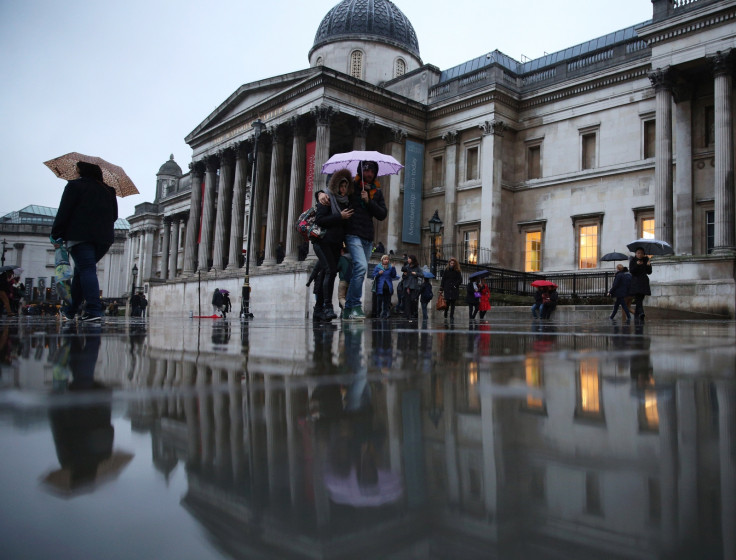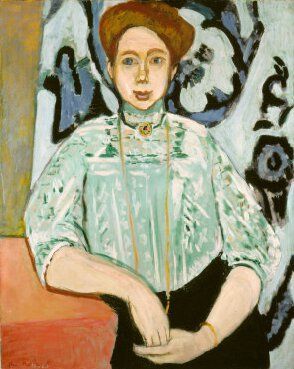'Multi-million-pound Matisse portrait is not looted Nazi art' says National Gallery
The Portrait of Greta Moll is at the centre of an ownership row.

A dispute over the ownership of a portrait held by the National Gallery has led to legal action in a New York court.
The three grandchildren of Greta Moll, who sat for a portrait by Henri Matisse, are seeking the return of the piece from the London gallery as well as £24.6m in compensation.
They claim it was stolen from Mrs Moll after World War II, when she and her husband Oskar were living in Germany.
Mrs Moll and her husband were artists and students of Matisse and had acquired the piece, which was painted in France, and took it back to Germany.
But they were then persecuted by the Nazis because their art was considered "degenerate", her family says.
The legal dispute is centred on what happened to the work after her husband died "prematurely" in 1947.

The Moll family claims that before Greta Moll moved to Wales to live with her daughter, she "entrusted" an art student of Oskar to take the painting to a Swiss art dealer for safe keeping.
But the student sold or took money for the painting in Switzerland in an illegal sale without Mrs Moll's permission, which was a "form of theft", the family believes.
It adds Mrs Moll gave a talk in 1954 at Ohio's Wayne State University, where said the painting had been "lost" after WWII.
However, the claim that the Moll family lost the artwork in the fallout from the Third Reich is undermined by the fact Mrs Moll moved to Wales in 1947, according to the National Gallery.
At this time, it is claimed, the family was still in possession of the painting.
Gabriele Finaldi, the gallery's director, told the Art Newspaper the UK's Spoliation Advisory Panel, which considers claims for cultural property lost during the Third Reich period, was unable to consider the case because its Nazi-era mandate ends in 1945.
The National Gallery said: "We understand that both Greta Moll and her husband were living in Germany during the Second World War.
"Some years after the war ended, and following the death of her husband in August 1947 (when the family say the painting was still in their possession), Greta Moll moved to Wales.
"This case therefore does not concern Nazi looted art."
It said the purchase of the portrait in the UK in 1979 was therefore "in good faith", adding that the family's decision to lodge legal action in the US was without "justification".
But the Moll family says it believes the gallery bought it without investigating its history or reading Mrs Moll's 1954 statement referring to its loss.
It adds: "If they had done so, they would have learned of the illicit sale of the painting in Switzerland and that Greta Moll never authorised its sale or gave up her title to it.
"The National Gallery's claim to good title thus rests not on a legal transfer of title from its true owner, Greta Moll, but upon an illicit sale, which took place under duress in the aftermath of WWII."
David Rowland, the New York lawyer acting for the three Moll claimants, says it is "improper for public museums to hold misappropriated/stolen artworks", particularly for art "lost in the Nazi-era and its immediate aftermath".
Hannah Rothschild, chairwoman of the National Gallery's board of trustees, told the Daily Mail: "The board of trustees of the National Gallery have full confidence in our rightful ownership of Matisse's Portrait of Greta Moll and we will robustly defend this action on behalf of the British public."
© Copyright IBTimes 2025. All rights reserved.





















